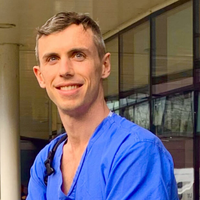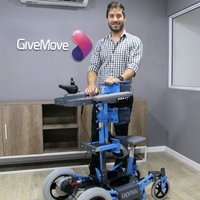Biotechnology & medicine
Dr Fiona Freeman
Assistant Professor, School of Mechanical & Materials Engineering, University College Dublin

Europe
Matthew Murphy
Developed a surgical technique which can regenerate articular cartilage with minimal scarring.

Latin America
Jose Gomez Zea
Using artificial intelligence for early detection of diseases to prevent deaths.

Asia Pacific
Dalong Ni
Nanomaterial-based repair medicine, offering novel strategies to repair organ injuries.

Latin America
Alejandro Bisi
Using technology to give more independence to children with motor disabilities through motorized standing frames.
